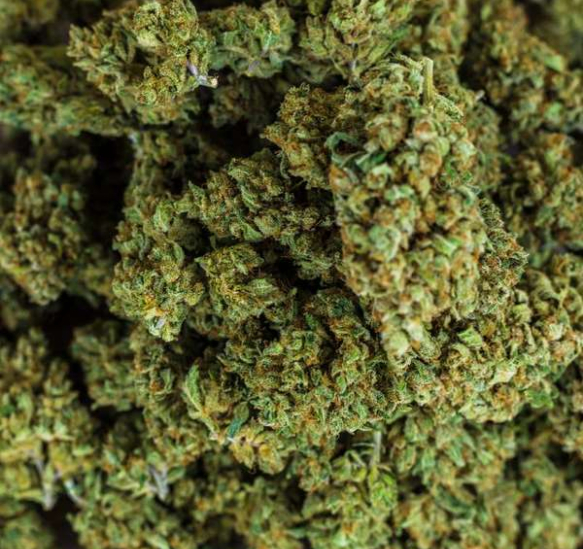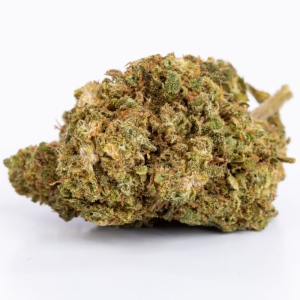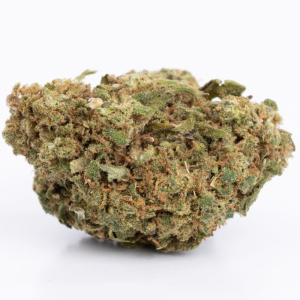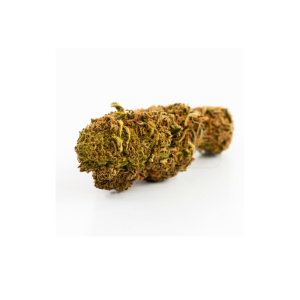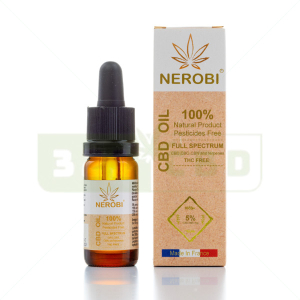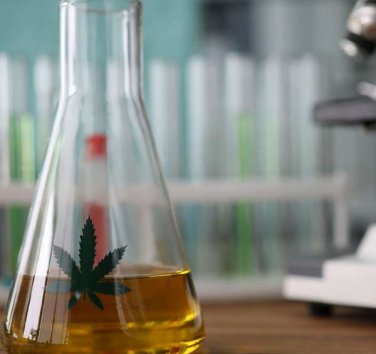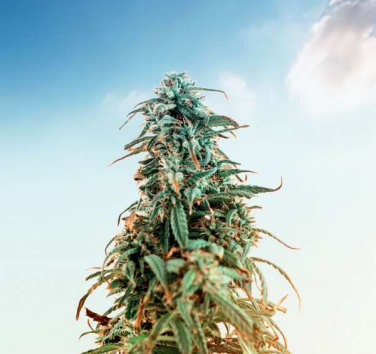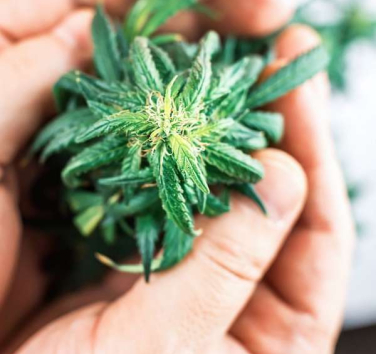1. H4CBD vs. HHC: the genesis
H4CBD, or Hexahydrocannabidiol, was developed in the 1940s, in the middle of the Second World War, following the work of Professor A.R. Todd and his teams.
At the time, interest in cannabis-derived compounds was growing within the framework of scientific research to improve the management of pain. Professor A.R. Todd's teams succeeded in isolating H4CBD by carrying out catalytic hydrogenation of Egyptian hashish.
Technically, this synthetic cannabinoid is the result of a slight chemical modification of CBD in the laboratory. Sure, it doesn't occur naturally in the hemp plant, but neither is it the result of a massive artificial chemical process. It can be compared to margarine, which is certainly synthetic, but which is very easily obtained by mixing water and vegetable oil with some emulsifiers.
Hexahydrocannabinol, or HHC, shares a similar origin with H4CBD. It was synthesized at the same time, in 1944, by Roger Adams, a famous American chemist and pioneer in molecular research. This feat also falls within the context of the first wave of therapeutic interest in hemp and its derivatives.
HHC also comes from a hydrogenation process, but not from CBD. To obtain it, we will instead have to work in the laboratory on THC, the main psychoactive component of cannabis. Concretely, this will involve combining Delta 9 THC with hydrogen molecules in order to transform THC into HHC.
The work of professors A.R. Todd and Roger Adams paved the way for the many therapeutic applications of hemp that we know today, particularly in the management of pain and research dedicated to neurological and neurodegenerative disorders such as Parkinson's and Alzheimer's.
.png)
2. H4CBD vs. HHC: the synthesis method
H4CBD is synthesized from CBD, which is therefore naturally present in cannabis.
We are in achemical hydrogenation reaction: the CBD is “treated” with dihydrogen (H2 ) in the presence of a catalyst, typically palladium on carbon (Pd/C) or platinum (Pt).
This reaction converts the carbon-carbon double bonds present in the CBD structure into single bonds, by adding four hydrogen atoms (hence the prefix “H4"). The process transforms the molecular structure of CBD by increasing its saturation and modifying its physicochemical and biological properties.
HHC, for its part, is obtained by hydrogenation of THC (tetrahydrocannabinol), the main psychoactive component of cannabis. This reaction follows a principle similar to that which results in H4CBD, involving the addition of hydrogen to THC in the presence of a catalyst such as palladium on carbon or platinum.
Hydrogenation removes the characteristic double bond in the structure of THC, thereby reducing its psychoactive properties depending on the degree of hydrogenation. The HHC that we obtain in vitro presents a modified chemical structure which impacts its affinity with cannabinoid receptors.
3. H4CBD vs. HHC: the effects felt
Because it is its hydrogenated derivative,H4CBD shares many of the beneficial effects of CBD, but with potentially increased intensity.
The structural modification increases its bioavailability and could potentially enhance its interaction with the endocannabinoid system, resulting in improved anti-inflammatory and anxiolytic effects, as well as more powerful antioxidant action.
Clearly, the difference in effects between H4CBD and HHC is not a difference in nature, but a difference in intensity. A study published in 2006 explains that affinity of H4CBD with the “CB 1” receptor is “tenfold” compared to the impact of CBD. This conclusion seems to align with feedback from consumers... who on the other hand note a slight psychotropic effect, undoubtedly due to the consumption of non-traceable H4CBD products whose THC concentration exceeds the 0.3% authorized by law in France.
The scientific literature on H4CBD is very limited, and we only have snippets of reliable information. We will have to wait to develop certainty about this molecule... which is why we have chosen not to offer it on our online store.
We have a lot more certainty about HHC, which is a cannabinoid derived from THC. Some argue that the molecule is very euphoric, others that it is moderately intoxicating. One thing is certain: HHC is a psychotropic molecule. And that’s enough to avoid consuming it… especially since it is banned in France. Which brings us to the last criterion of comparison.
.png)
4. H4CBD vs. HHC: legal status in France
In France and elsewhere in the EU, the legal status of H4CBD is modeled on that of CBD: it has been perfectly legal since 2020, following the historic decision of the Court of Justice of the European Union (CJEU) which ruled that the ban on the marketing of CBD and its non-psychotropic derivatives was a violation of the principle of free movement of goods. As with CBD, products containing H4CBD can be freely marketed and consumed under two conditions:
-
Their THC level must not exceed 0.3%;
-
They must respect the hygiene conditions in force.
Should we still consume it? Our position at 321CBD is clear: we recommend that you avoid consuming this molecule which still retains a certain amount of mystery.
The legal status of HHC could not be clearer: the molecule was formally banned in France on June 13, 2023 by the National Agency for the Safety of Medicines and Health Products ( ANSM).
Doctor Joachim Müllner explains on Doctissimo: “Unlike H4CBD, HHC is a derivative, not of CBD, but of cannabis containing significant concentrations of THC from the hydrogenation of THC molecules. Unlike CBD, and therefore most probably H4CBD, HHC has effects close to classic cannabis whose THC level is high: 'dysleptic' effects, that is to say altering the normal brain function.

